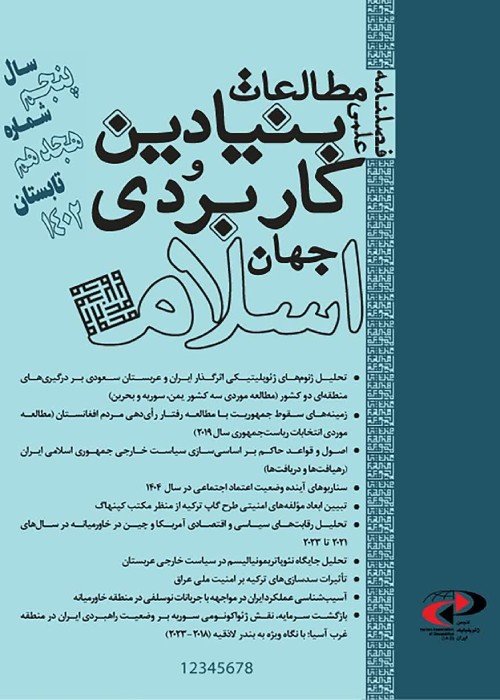Principles and functions of the European Neighborhood Policy; Lessons for Iran's Neighborhood Policy
Introduction
Countries do not have the right to choose their neighbors because geography has already made it necessary for them.The emergence of geographical, political, and conceptual boundaries between neighboring countries has provided a platform for extensive cross-border cooperation between neighbors. Countries develop frameworks known as "neighborhood policies" to manage their various political, security, economic, and cultural relations with their neighbors. European Neighborhood Policy is not about relations between a country and its neighbors, but about the relations of a political-economic union consisting of 27 countries that have tried to achieve common policies by uniting sovereignty and powers in different areas and organizing relations with their neighbors. The European Union, through the European Neighborhood Policy, as a common policy has tried to regulate the relations of the European Union with the countries with which it has an immediate geographical border.
Methodology
Different patterns of neighborhood policy can be identified in the world and due to their similarities and differences, it can be used in designing and promoting Iran's neighborhood policy. One of these patterns is Europe's neighborhood policy. Accordingly, this article seeks to answer the question that what lessons can be learned from the principles, goals and functions of the European Neighborhood Policy for the design and implementation of Iran's neighborhood policy? In this context, the article first looks at the history of the formation and evolution of the European Neighborhood Policy, then will explain the foundations of the formation of this policy. In addition, the goals and drivers of the European Neighborhood Policy will be analyzed and the European Neighborhood Policy will be evaluated and critiqued. Finally, the lessons that the European Neighborhood Policy can offer to the designers, policy makers and implementers of Iran's neighborhood policy will be expressed in the framework of policy recommendations.
Result and discussion
The European Neighborhood Policy was established in 2004 with the aim of preventing the emergence of new dividing lines between the enlarged European Union and its neighbors, and in order to strengthen the prosperity, stability and security of Europe and its neighbors.The review of this article showed that the European Union has developed a European Neighborhood Policy in response to the challenges posed by geographical proximity and the existence of historical and cultural ties between the Union and its neighbors. The European Neighborhood Policy is an EU foreign policy instrument that seeks to establish relations with neighboring countries in south and east of the EU's borders through largely bilateral policies or regional and multilateral cooperation initiatives. The European Union, through the European Neighborhood Policy, as a common policy between the member states, has tried to regulate the relations of the European Union with the countries with which it has a direct geographical border, within the framework of the principles and goals of the European Union and through the defined mechanisms. The European Union has used a variety of tools to advance its neighborhood policy, such as the European Neighborhood and Partnership Instrument and the European Neighborhood Instrument.
Conclusion
The findings of this paper show that the European Neighborhood Policy is a very complex policy that addresses the heterogeneous group of EU neighbors in the East and South. Despite the fact that neighborhood policy is presented in a broad and uniform framework, this heterogeneity of neighboring countries has led the EU to resort to the "principle of differentiation" in practice; That is, to implement practical neighborhood policy plans for each neighboring country based on the specific circumstances of that country. Also in this framework, the two principles of conditioning relations with neighbors in relation to positive Conditionalization and negative positive Conditionalization have been considered. Examining the European Neighborhood Policy as a powerful tool of the European Union to advance the Union's relations with neighboring countries and secure its various benefits through it,has lessons that can be learned by policy makers in the field of formulating and implementing Iran's neighborhood policy. Some of these lessons are listed in the Policy Recommendations section of the paper for Iran's neighborhood policy makers
- حق عضویت دریافتی صرف حمایت از نشریات عضو و نگهداری، تکمیل و توسعه مگیران میشود.
- پرداخت حق اشتراک و دانلود مقالات اجازه بازنشر آن در سایر رسانههای چاپی و دیجیتال را به کاربر نمیدهد.



